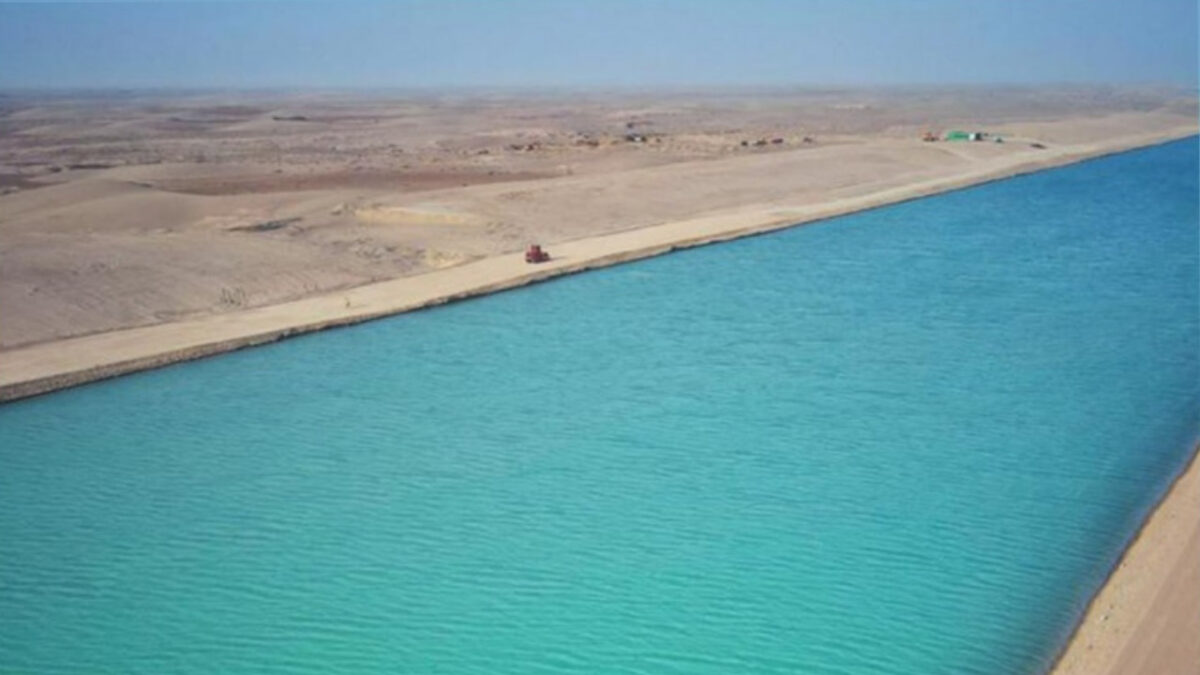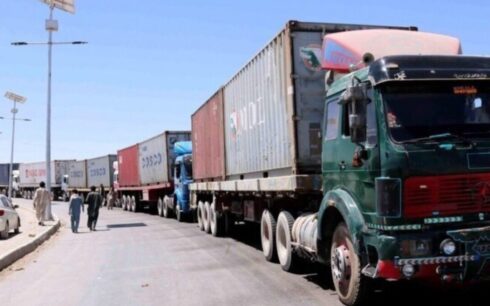The initial phase of the Qosh Tepa canal project, aimed at diverting water from the Amu River, was completed following 18 months of work, as reported by the Taliban’s national development company on Wednesday.
The Taliban’s national development company reported Wednesday that Phase I took 18 months to complete, instead of the planned 24 months. High-ranking Taliban officials, including Sirajuddin Haqqani and Yaqub Mujahid, the Taliban’s ministers of interior and defense respectively, attended a ceremony in Balkh on Wednesday to mark the completion of the first phase.
This is the Taliban’s first major infrastructure project, which once complete will divert about 20 percent of the water from the Amu Darya river across drought-stricken land in northern Afghanistan.
The main canal is expected to be 285 km long and the overall initiative seeks to convert 550,000 hectares of desert into farmland.
The first phase of the canal is 108 kilometers long and stretches from the Amu River to the Daulat Abad district in Balkh province.
The Taliban has made the canal a priority project and construction started early last year. According to the Taliban’s national development company, Phase I was expected to take two years to complete, but was finished in 18 months. This phase also came in under budget, the company said.
According to them, surveys and design work for Phase II has already started.
The second phase of the canal starts from Dawlat Abad district in Balkh, passes through Aqcha area in Sheberghan city of Jawzjan and ends in Andkhoi city in Faryab province, which is 177 km long.
The third phase also includes sub-channels.
The canal is 8.5 meters wide and will transfer 668.4 cubic meters of water per second.
Severe drought and a changing climate has wreaked havoc on rainfall patterns in the region and average temperatures across Afghanistan have risen by 1.8 degrees Celsius in the past 70 years, or twice the global average. This has impacted farmers considerably. But once the canal is completed tens of thousands of hectares of land will be arable – increasing Afghanistan’s chances of becoming self-sufficient in food production.
However, neighbors Uzbekistan and Turkmenistan have already raised concerns about the loss of water from the Amu Darya, which would affect their cotton fields.
Uzbek Water Resources Minister Shavkat Khamraev said a delegation had been sent to Kabul to convey Uzbekistan’s concerns.
In June, US-based Foreign Policy Research Institute warned that the loss of water in the river will affect tens of thousands of people in downstream communities in Uzbekistan and Turkmenistan, and while the canal is not due to be completed until 2028, construction is proceeding ahead of schedule.
Afghanistan and its Central Asian neighbors have not signed any agreements on water use, the institute reported that disputes over water use could have suddenly become an issue that could derail ties between Afghanistan and Central Asian states and Iran.
Tough negotiations seem inevitable and while the governments in Turkmenistan and Uzbekistan ponder their strategy, they must be alarmed at clashes a few months ago along the Afghanistan-Iran border, due to another water dispute – this one regarding the Helmand river.





